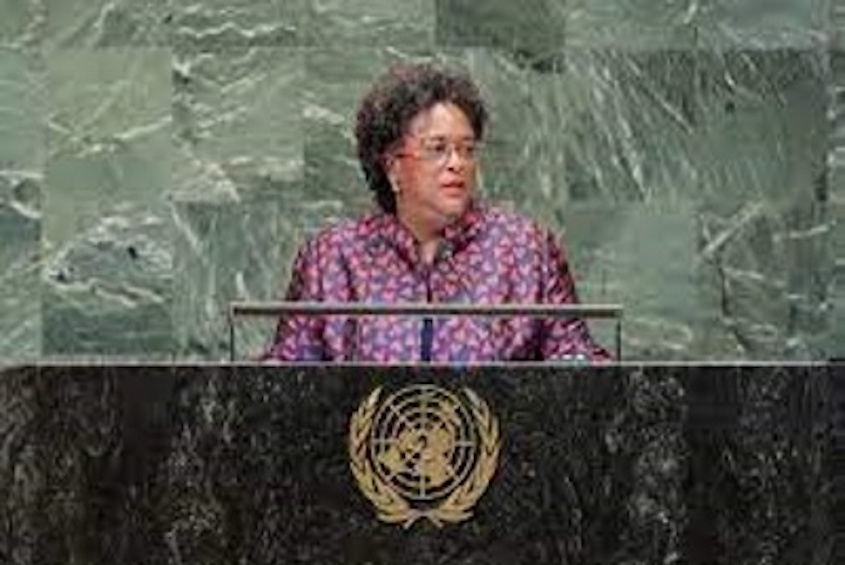PROPOSED ACADEMY AT BCC TO PUSH CONSERVATION EFFORTS
A proposed water academy to be established at the Barbados Community College (BCC) in the near future has been touted as an initiative to lead the island in the direction of becoming a water-smart nation.
Prime Minister Mia Mottley, who made the announcement on Wednesday, said children as young as three years old will become water monitors through the initiative which is intended to transform the attitudes of Barbadians towards water conservation.
Addressing the opening of the Caribbean Water Conference at the Lloyd Erskine Sandiford Centre, she said the academy would focus on preparing primary, secondary and tertiary students to become water monitors.
“And this is not a highly esoteric, academic, middle-class thing. This has to be a mass-based movement of water monitors telling the person in the house ‘you hear don’t leave on the pipe when you brushing your teeth; turn it off’, right back to harassing people, ‘why you ain’t change the toilet yet to the one that flushes less; it doesn’t use up as much water’ – the language that people understand in the region to transform the behaviour, not because the Government wants to look good or water authorities want a better bottom line, but because water is life for that household,” Mottley said.
She indicated that the academy, which will help the country tackle its prolonged water crisis, will also offer training and other technical assistance to professionals in the sector.
Principal of the Caribbean Institute for Meteorology and Hydrology (CIMH) Dr David Farrell, whom Prime Minister Mottley announced would be tasked with the responsibility of chairing the advisory committee to establish the academy, said children as young as three years old would be able to become water monitors.
He explained that different incentives, possibly including a reduction in water bills, would be used to encourage parents to allow their children to become water monitors.
“Normally, you try to do these projects and only the wealthy and upper middle class who are environmentally conscious take it on. For some poor child whose mother has to go to work and do all these different things, there is no incentive for them to engage their child in this. But if you have discounts somewhere in the system, then you have an incentive to get your child to participate so that you can have savings,” Mottley said.
“And if the schools are saving water, why not take the savings that the schools generate and give back to the school, perhaps through some type of programme,” he said.
Dr Farrell said the proposed academy would also be hosting summer camps, with the first possibly being held this year.
“She [Prime Minister] asked me to chair the initiative so we can get it off the ground to get it rolling and so on. I will try to organise a summer camp this summer just so that it gets some traction and so on. But certainly, we are going to bring people on board to talk to the educational institutions and talk to the private sector and so on, to get everybody involved,” the CIMH principal said.
“Because at the end of the day, if we go all desal [desalination] it will cost me money because I have to pay my water bill, but if we can save and get everybody saving and keeping water in the ground at the same time, keeping money in people’s pockets, this is all good as far as I am concerned.”
The Caribbean Water Conference, organised by the United States Agency for International Development (USAID) in collaboration with the Ministry of Transport and Works and Water Resources, unites leaders from across the region on a mission to tackle climate change and its impact on water resources.
The two-day conference will address challenges of water availability, usage and management in the Caribbean, with a focus on mitigating the adverse effects of climate change.










